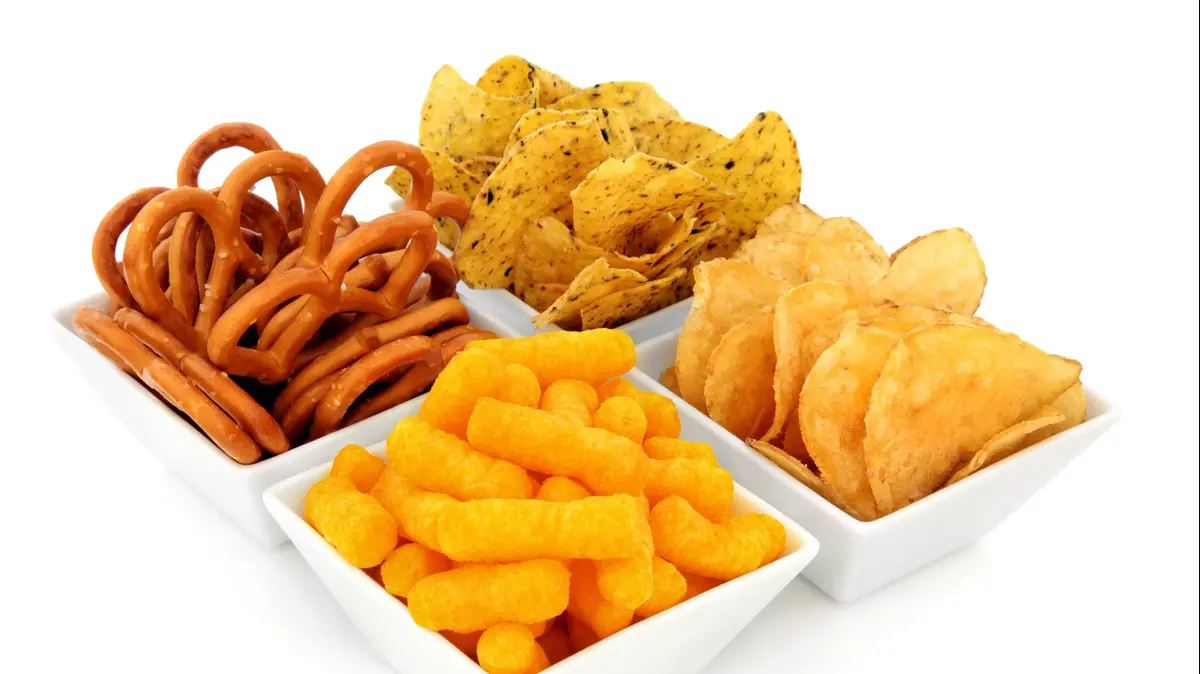This is how snacks harm our body/Ministry of Health
It's not meant to excuse our actions, and we really don't judge – but it turns out that some of us are just as addicted to snacks as others are to nicotine, cocaine or heroin. Experts say 1 in 10 people are addicted to processed foods — a real addiction, not just craving sweet or salty.
A new analysis of 281 studies conducted in 36 different countries found that 14% of adults are addicted to sweets and snacks. The finding is shocking, considering that processed foods like hot dogs, ice cream, biscuits, soft drinks and sugary grains have previously been linked to cognitive decline, cancer, psychological distress and even early death.
The analysis was led by Professor Ashley Girhard of the University of Michigan, who previously created the Yale Food Addiction Scale, by applying the same criteria used by experts to diagnose substance addiction. This criterion includes uncontrollable and excessive consumption, cravings and continuous consumption despite possible negative health effects.
Addictive Like Drugs/ShutterStock
"The combination of refined carbohydrates and fats commonly found in processed foods appears to have an increased effect on the brain's reward systems above each nutrient alone, potentially increasing the potential for addiction to these foods," Geerhard and the study authors wrote in their new study, whose findings were published in The BMJ.
"For many people, many processed foods are addictive," researcher Chris Van Tolken wrote to the Guardian in a paper published about the new study, "and when people experience food addiction, it's almost always processed products."
MORE:
5 Foods You Think Are Healthy But Actually Ultra-Processed
Cancer Doctors Uncover Foods They Won't Eat in Life
More in Walla!
The treatment that prolongs the lives of lung cancer patients
In association with the Israeli Lung Cancer Association
"When people experience food addiction, it's almost always processed products." / ShutterStock
What exactly causes this addiction is still a mystery to experts, some of whom believe that there may not be one ingredient that causes it – unlike nicotine in tobacco – but a multitude of factors. Foods of natural origin tend to contain more carbohydrates or more fats, but not high levels of both, while processed foods have disproportionately high levels of both. For example, if an apple has 55 calories of carbohydrates and less than 2 calories of fat, a bar of chocolate contains 237 calories of carbohydrates and 266 calories of fat.
Previous studies have also found that sugary or fatty foods make healthier alternatives less appealing — and this brain rewiring can have health consequences, such as overeating and weight gain. Eating highly processed foods triggers an influx of dopamine followed by a sudden drop, resulting in an endless cycle of craving, consumption and relaxation – similar to what a person addicted to alcohol or drugs experiences. Although "likely not addictive on their own," additives in foods can be "reinforcing" effects, Geerhard's team noted in the study.
However, not everyone may be sensitive to the addictive qualities of highly processed foods – some people may be able to eat a handful of salty potato bars and settle for it, while others are less fortunate and won't be able to stop themselves without destroying a bag. "The addictive products are not addictive for everyone," Van Tolken said. "Almost 90% of people can drink alcohol and not develop a problematic and dependent relationship with it. Many can try cigarettes or even cocaine without wanting more."
However, the addictive properties of processed foods have attracted the attention of health-conscious scientists, who believe that some foods should come with an addiction warning "like cigarettes" – because, after all, highly processed foods are everywhere, after all, they are everywhere. "Trying to quit processed foods today is like trying to quit smoking in the '60s," Van Tolken said. Besides, most things consumed in moderation are safe. Healthline experts recommend that no more than 10% to 20% of our calories come from processed foods. To minimize the consumption of processed foods, Van Tolkan has a blunt approach: "Ask yourself: Is it really food? It can quickly make you go from addiction to feeling disgusted."
- More on the subject:
- Junk food
- addiction
- Human body
- Snacks
- chocolate
- ice cream

